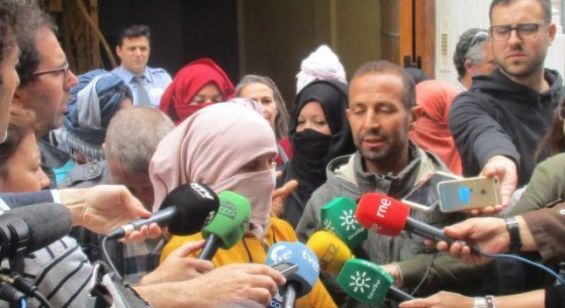Spain’s National Court (Audiencia Nacional), an exceptional high court in the country, might be taking care of the sexual abuse complaints lodged in May by Moroccan farm workers in Huelva, reports Spanish media.
The decision, currently studied by Spain’s high court judge Santiago Pedraz, comes as the Association of the Administration of Justice Users (Ausaj) sent a document to the court, denouncing the way local authorities in Huelva treated the cases.
Sent on August the 6th and signed by the victims’ lawyers, Ausaj wants the National Court to hear the Moroccan women in question as the case is part of the special competence of the judicial institution, says Spanish online newspaper La Mar de Onuba.
Moreover, the association urged the judge to investigate the actions and hearings of the two local courts in charge of the cases in La Palma del Condado and Moguer, which, according to Ausaj, have been treating the complaints as isolated cases.
Ausaj reported that the authorities in Huelva have not included everything reported by the Moroccan farm workers and that even others who wanted to file complaints against their bosses were prevented from that as they were sent to Morocco before the end of their visas.
In fact, two complaints have been filed in Huelva by several Moroccan strawberry pickers working in the region’s agricultural fields, leading to the opening of hearings in the province’s courts. One of the complaints is sponsored by the Andalusia Workers Union (SAT).
Seeking the help of the National Court
Ten of these Moroccan women have also sought the help of Spain's National Court, urging it to consider taking care of their complaints, says El Pais.
According to the same source, these women refused to attend hearings hosted by the local courts in Huelva as they believe their cases deserve to be treated by Spain’s high court.
Speaking to Yabiladi, José Blanco, a member of SAT who is taking care of the Moroccan women, stressed that farm workers in question believe that the two courts in Huelva are «corrupt and that only Spain’s National Court can secure a fair trial for them».
The same opinion has been shared by Ausaj’s letter which stresses, that the venerability of the victims makes of these alleged abuses, crimes against humanity. The association has even referred to offences related to human trafficking in their document.
As a response, judge Santiago Pedraz has submitted a request to the prosecutor’s office in Spain to carry out proceedings started by the two courts in Huelva.
For the record, the ten Moroccan women in question have been working for a company called Doñana 1998. Standing up against abuses, these farm workers claimed that they have been living in fenced accommodations in the farm, denouncing the working conditions, salaries and sexual abuses.
The recent develoments in the Huelva Gate case come as the Workers’ Commissions (CCOO), Spain’s largest trade union, signed an agreement with the Young Farmers Agrarian Association (La Asociación Agraria Jóvenes Agricultores, ASAJA - Huelva), to create mechanisms that would eradicate the vulnerability of some of these women. Gender equality is also part of the new agreement.





 chargement...
chargement...













